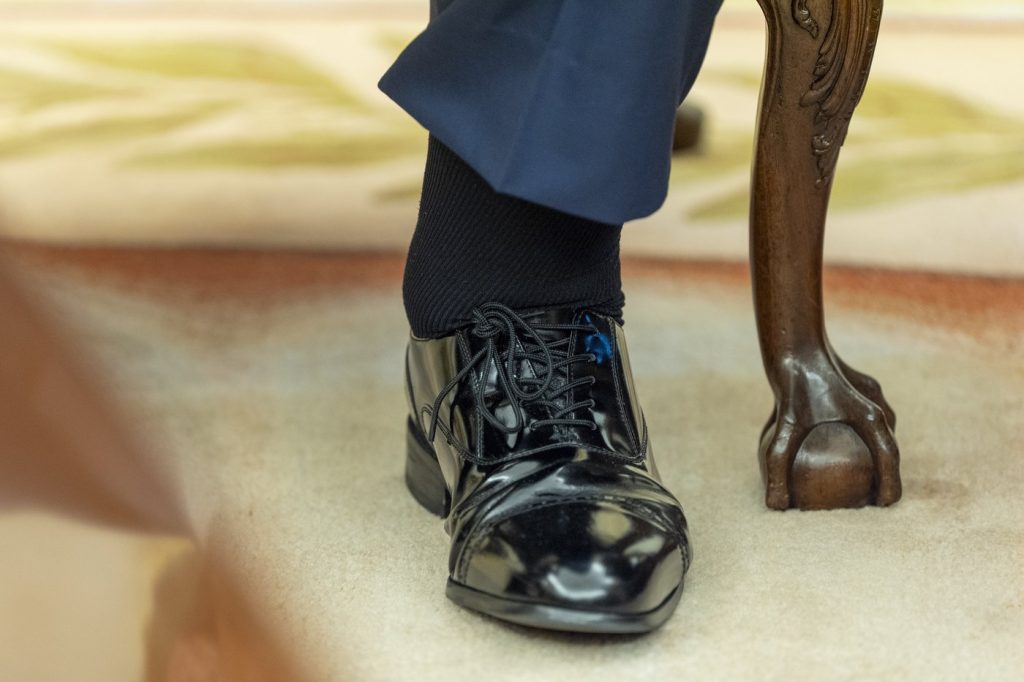WASHINGTON (AP) – President Donald Trump underwent a recent medical checkup after observing mild swelling in his lower legs. The White House confirmed on Thursday that Trump has been diagnosed with chronic venous insufficiency, a common condition in older adults that causes blood to pool in the veins due to valves losing their ability to function properly.
During the press briefing, Press Secretary Karoline Leavitt explained that the White House medical unit conducted tests that led to this diagnosis. She also addressed visible bruising on the back of Trump's hand, which was observed in recent photographs. The bruising is thought to stem from frequent handshaking and the use of aspirin, a medication Trump takes to minimize the risk of heart attack and stroke.
Leavitt stated that sharing details about Trump’s medical condition was intended to clear up recent speculation regarding the 79-year-old president's health. The announcement is significant, as Trump has previously kept many aspects of his health private. In April, Trump had a comprehensive physical exam that involved more than a dozen specialists, and the three-page report released at that time did not indicate any issues related to chronic venous insufficiency. At that exam, physician Sean Barbabella noted that Trump's joints and muscles exhibited a full range of motion, with normal blood flow and no swelling.
Leavitt did not specify when Trump first noticed the swelling in his legs but mentioned that the comprehensive exam was part of his routine medical care and conducted out of "an abundance of caution." Chronic venous insufficiency is often considered benign but can lead to complications, such as leg ulcers, if not managed effectively. Fortunately, the tests showed no signs of deep vein thrombosis, a more severe condition involving blood clots in the deep veins, nor was there evidence of arterial disease.
Advice for managing chronic venous insufficiency typically includes lifestyle changes such as weight loss, regular walking, and elevating the legs. In some instances, medical-grade compression stockings may be recommended. Dr. Anahita Dua, a vascular surgeon at Mass General Brigham who has no direct involvement with Trump's care, explained that there is currently no cure for the condition, but the majority of cases—including that of Trump—are mild to moderate.
Leavitt reported that Trump's condition is not causing him any discomfort and did not disclose specific treatment details, implying they would be included in the doctor’s letter. However, the letter released to the public contained no additional information beyond what Leavitt had already summarized.
In summary, the medical examination revealed no indications of heart failure, kidney impairment, or any systemic illness. Leavitt reassured reporters that "the president remains in excellent health," citing observable factors from Trump’s daily activities.












